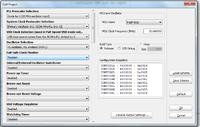K33rg4t3
Full Member level 3
Hey guys
I am going to use it in weather station.
I use pIC18F4550 and DS18B20
Can anyone tell me few things?
1. Do I have to write One-wire code myself or is there a library in MikroC ?
2. Can I use any digital pin for communication or does it have to be a specific one like with TX/RX ?
Thanks in advance!
I am going to use it in weather station.
I use pIC18F4550 and DS18B20
Can anyone tell me few things?
1. Do I have to write One-wire code myself or is there a library in MikroC ?
2. Can I use any digital pin for communication or does it have to be a specific one like with TX/RX ?
Thanks in advance!
